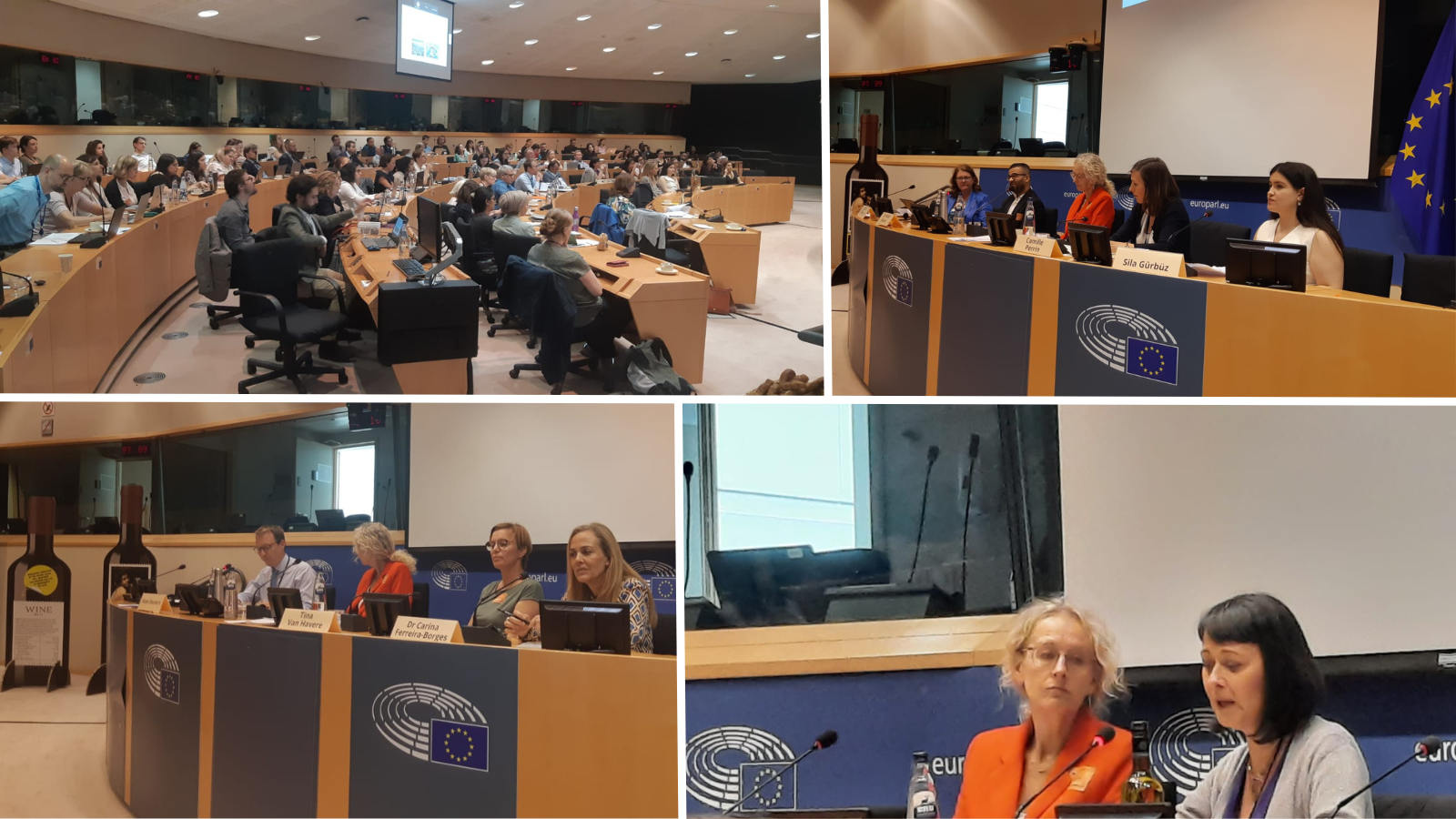"Is the EU facilitating an industrial epidemic?" Eurocare highlights the power of commercial determinants of health and sets out its alcohol labelling position
The European Alcohol Health Policy Alliance (Eurocare) yesterday highlighted the powerful, cutting-edge concept of commercial determinants of health while setting out its position on alcohol labelling. Alcohol is among the biggest commercial determinants of health, alongside tobacco, ultra-processed food and fossil fuel.
"Is the EU facilitating an industrial epidemic?" will feature presentations from the foremost figures in the field:
− Dr Nason Maani, Lecturer in Inequalities and Global Health Policy at the University of Edinburgh
− Professor Anna Gilmore, Professor of Public Health, Director of the Tobacco Control Research Group at the University of Bath
These presentations were followed by discussions of the topic by policy makers and MEPs as well as other highly influential stakeholders.
Eurocare’s also launched its position paper on alcohol labelling. The Position paper calls on the European Commission to:
− Release the proposal promised by the end of 2022 for an EU mandatory alcohol labelling (with nutritional and ingredient information ON LABEL like all other food and drink products sold to consumers)
− Recommendation on the adoption of alcohol health warnings supported by the establishment of an EU health warnings library
“An open letter, signed by 68 leading civil society organisations, was sent to the President of the European Commission. The letter is asking the European Commission to release the alcohol labelling proposal as soon as possible, to stop being influenced by economic operators and to stand up to EU citizens’ right to basic alcohol health information,” says Florence Berteletti, Secretary General of Eurocare.
Drinks like milk, soft drinks, as well as no- and low-alcohol drinks containing less than 0.5% and 1.2% of alcohol by volume respectively, already have to provide consumers with calorie and ingredient information. But drinks over this alcohol level are exempted from normal labelling regulations.1 The lack of alcohol product labelling means few consumers know that one large beer typically contains around a tenth of a day’s calorie intake. And they are also unable to inspect the list of ingredients to avoid unwanted additives.
Currently, 97% of wine and over 75% of spirits products carry no ingredient information.2 Producers would rather not share information that might deter consumers from buying their products and so can never be relied on to provide it.
The European Commission found no objective grounds for the current exemption in 2017.3 Its 2021 Beating Cancer Plan placed a high priority on raising public awareness of the impact of alcohol on rates of cancer with labelling a key action.4
All speakers are available for interviews after the meeting.
Editor’s notes:
- Report from the Commission to the European Parliament and the Council regarding the mandatory labelling of the list of ingredients and the nutrition declaration of alcoholic beverages COM/2017/058, European Commission (2017)
- In its Europe's Beating Cancer plan, published in February 2021, the European Commission suggests – among other initiatives concerning cancer prevention – several actions concerning alcoholic beverages, such as limiting online advertising and promotion, and reviewing European Union (EU) legislation on the taxation of alcohol. Also among the proposals is mandatory labelling of ingredients and nutrient content on alcoholic beverages by the end of 2022. Health warnings on labels should follow by the end of 2023. First attempts to label ingredients of alcoholic drinks were already made in the late 1970s, however the Council was not able to agree on any of the proposed models. Furthermore, alcoholic drinks containing more than 1.2 % by volume of alcohol (ABV) are exempted from the obligation, set on other drinks and foodstuffs, to list the ingredients and make a nutritional declaration on the label. The European Commission adopted a report in 2017, concluding that it had 'not found objective grounds that would justify' the absence of information on ingredients and nutritional information on alcoholic beverages. Following on from the Commission's report, the European associations representing the alcoholic beverages sectors presented their self-regulation proposal in March 2018, suggesting that some sectors would list all ingredients on labels, while others could use online means of communication instead. Stakeholders have differing views on the desirability and feasibility of listings on-label; some would prefer this information to be allowed to be given off-label through QR-codes, apps or websites, while others absolutely insist that alcoholic drinks should be no different from other sectors of the food and drink industry. The European Parliament has called on the European Commission to consider a health warning and calorie content on alcoholic beverage labels. This is an update of a Briefing published in April 2021.
- The European Alcohol Policy Alliance (Eurocare) : Eurocare is the only alliance of national, pan-European and international NGOs working exclusively on EU policy analysis and advocacy linked to the reduction of alcohol related harm in Europe. Member organisations are involved in advocacy and research, as well as in the provision of information and training on alcohol issues and the provision of services for people whose lives are affected by alcohol problems. Eurocare has become a recognised partner in the alcohol policy field working with the European Commission, the European Parliament, permanent representations, the OECD and the World Health Organisation. Eurocare is a not-for-profit international organisation registered in Belgium (AISBL). Eurocare and its members do not receive funding from the alcohol industry or industry-funded organisations. https://www.eurocare.org/
1 WHO Health Evidence Network synthesis report on alcohol labelling (June 2020) https://apps.who.int/iris/bitstream/handle/10665/332129/9789289054898-eng.pdf
2 Sethia, A. et al, Market Analysis on Label Information: Alcoholic Drinks in the EU, July 2022
https://publications.jrc.ec.europa.eu/repository/handle/JRC129457
3 Report from the Commission to the European Parliament and Council regarding the mandatory labelling of the list of ingredients and the nutrition declaration of alcoholic beverages. COM(2017) 58 final 13.3.2017
https://food.ec.europa.eu/system/files/2017-03/fs_labelling-nutrition_legis_alcohol-report_en.pdf
4 Europe's Beating Cancer Plan (2017)
https://health.ec.europa.eu/system/files/2022-02/eu_cancer-plan_en_0.pdf

